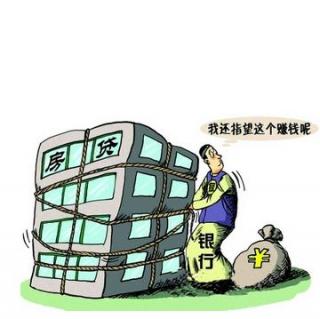
介绍:
China's central bank relaxes mortgage rules for second home buyers
China will relax mortgage rules for second home buyers.
According to a joint statement by the central bank and the banking regulator, buyers who own one home and have paid off their mortgages will be treated as first home buyers.
These buyers can then enjoy a discount of up to 30 percent on their mortgage rate.
Down payment levels will also be cut to 30 percent from 70 percent.
These privileges were previously only available to first-time home buyers.
The move is believed to be one of the biggest steps this year in attempts to lift the cooling housing market.
China factory gauge falls from initial reading
A performance measure of China's manufacturing sector fell marginally from its initial reading a week ago, as domestic orders were weaker than previously estimated.
The HSBC Purchasing Manager's index or PMI for September was at 50.2, lower than the preliminary prediction of 50.5 issued last week, and remains unchanged from August.
But export orders picked up again this month after the temporary drop in August.
Stronger manufacturing growth is said to be driven by companies' inventory building, albeit at a slower pace.
China starts direct yuan-Euro trade
China's central bank is now allowing the China Foreign Exchange Trading System to begin direct trading of the yuan against the Euro.
Chinese forex regulators have already been allowing the renminbi to trade against the euro, but only with the US dollar used as the intermediary.
The People's Bank of China expects the direct trade of the yuan against the Euro will be good for reducing exchange costs for market players.
The move is part of the broader plans to internationalize the Chinese currency.
For more on the latest move, CRI's Paul James spoke earlier with Gao Shang, analyst with Guantong futures.
…
Back anchor:
That's Gao Shang, analyst with Guantong futures, speaking to CRI's Paul James.
Govt. announces reforms to coal tax regime.
The Chinese government has announced that from December 1, it will levy a resource tax on coal, based on market prices and scrap the existing tax system that is based on production volume.
According to a statement issued by China's State Council, the tax rate for each region will be decided by provincial governments within a given range.
The coal-tax reforms are expected to benefit resource-rich regions and promote more balanced regional development and the rational exploitation of resources.
Coal producers in China have been struggling as a result of a massive supply glut and a collapse in prices.
The earlier tax system which was based on production volume had left bigger coal producers saddled with large tax bills even as prices have fallen.
More than 70 percent of firms have made losses this year, according to the China Coal Industry Association.
iPhone 6 gets approval to sell in China
The long-awaited Apple new phones will hit the Chinese mainland market in about two weeks.
Apple has received a license for its newly released iPhone 6 and 6 plus to be used on China's wireless networks.
China's Ministry of Industry and Information Technology says it has conducted testing on the devices related to potential security issues, and Apple has addressed those issues.
The new devices are set to hit the mainland market on October 17th.
The iPhone new models were initially released in several other countries including the U.S. a week ago.
During the first weekend after the launch, Apple saw a record 10 million units sold in those countries.
Japan's industrial output falls to lowest in five years unexpectedly
Japan's economy authority has released a preliminary report saying Japan's industrial production fell to its lowest level in five years last month, down 1.5 percent from July.
The new industrial numbers come in after Tokyo reported a 7 percent contraction of their economy through the second quarter.
The decline is ascribed mainly to Prime Minister Shinzo Abe's tax increase in April.
Abe is still mulling a second tax rise next year from 8 to 10 percent.
Some economists fear it could cripple the economy, if the timing is wrong or key economic indicator are misinterpreted, sending the economy spiraling back into recession.
South Korea's factory output sees worst dip since 2008
South Koreas factory output in August marked its worst fall since the 2008 global financial crisis, racing concerns about the pace of recovery in Asia's fourth largest economy.
Industrial production levels dropped by 0.6 percent in August from a month earlier.
The worst hit sectors included mining, manufacturing and the construction industry.
Manufacturing figures slipped by almost 4 percent after automobile production came to a standstill due to widespread strikes.
But retail sales climbed nearly 3 percent in August, indicating a recovery in consumer confidence.
Ford lowers 2014 pretax profit forecast
Ford has lowered its expectation for pretax profit this year to 6 billion U.S. dollars.
That's 2 billion less than its previous forecast.
Higher recall costs in North America and steeper losses in Russia and South America have caused the carmaker to slash its forecast.
大家还在听

